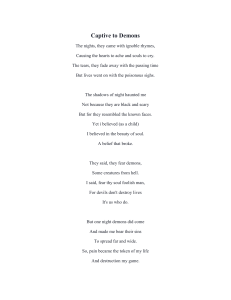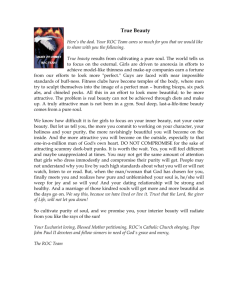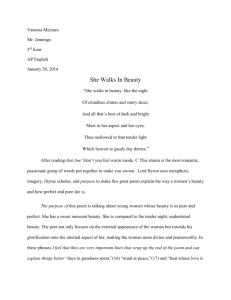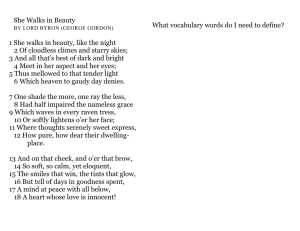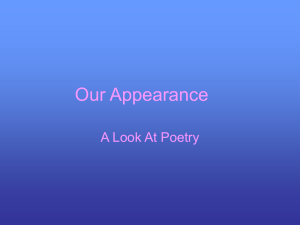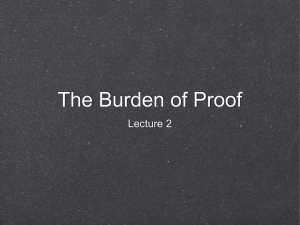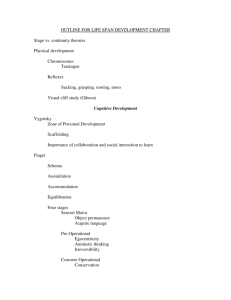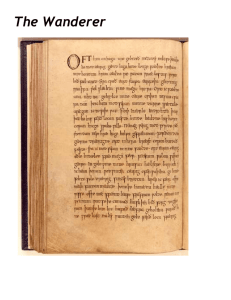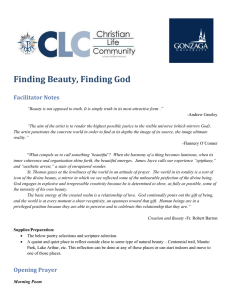Lecture 3 - De Anza College
advertisement
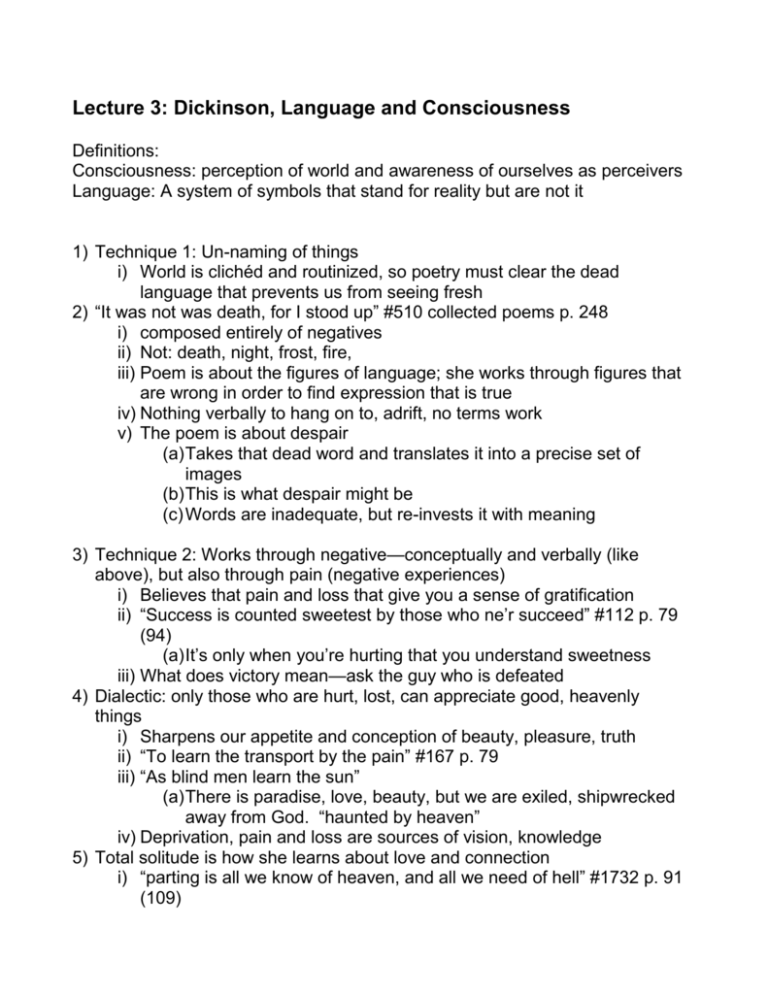
Lecture 3: Dickinson, Language and Consciousness Definitions: Consciousness: perception of world and awareness of ourselves as perceivers Language: A system of symbols that stand for reality but are not it 1) Technique 1: Un-naming of things i) World is clichéd and routinized, so poetry must clear the dead language that prevents us from seeing fresh 2) “It was not was death, for I stood up” #510 collected poems p. 248 i) composed entirely of negatives ii) Not: death, night, frost, fire, iii) Poem is about the figures of language; she works through figures that are wrong in order to find expression that is true iv) Nothing verbally to hang on to, adrift, no terms work v) The poem is about despair (a) Takes that dead word and translates it into a precise set of images (b) This is what despair might be (c) Words are inadequate, but re-invests it with meaning 3) Technique 2: Works through negative—conceptually and verbally (like above), but also through pain (negative experiences) i) Believes that pain and loss that give you a sense of gratification ii) “Success is counted sweetest by those who ne’r succeed” #112 p. 79 (94) (a) It’s only when you’re hurting that you understand sweetness iii) What does victory mean—ask the guy who is defeated 4) Dialectic: only those who are hurt, lost, can appreciate good, heavenly things i) Sharpens our appetite and conception of beauty, pleasure, truth ii) “To learn the transport by the pain” #167 p. 79 iii) “As blind men learn the sun” (a) There is paradise, love, beauty, but we are exiled, shipwrecked away from God. “haunted by heaven” iv) Deprivation, pain and loss are sources of vision, knowledge 5) Total solitude is how she learns about love and connection i) “parting is all we know of heaven, and all we need of hell” #1732 p. 91 (109) b) She is closed off to herself (1) “The soul selects her society, then closes the gate” #409 p. 85 (101) (2) We don’t control this—soul does it 6) Trauma—how she lives i) Even a walk in woods hurts you (a) “After great pain, a formal feeling comes” #372 p. 85 (101) 1. We never know what hit her—focuses on internal 2. Pain is timeless (b) Go over the top into a realm beyond language—letting go (c) “The brain is wider than the sky” #632 p. 88 (i) more celebratory tone—capacity of the mind to process all it sees and “hold” it 1. usually when she rhymes she’s in a better mood (ii) Difference from God: we must use language to interpret the world 1. The difference is: human = syllable; god = sound
